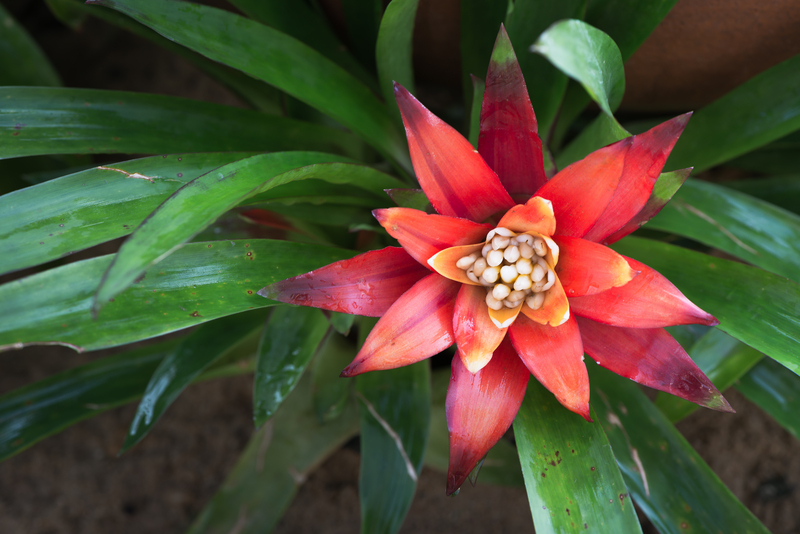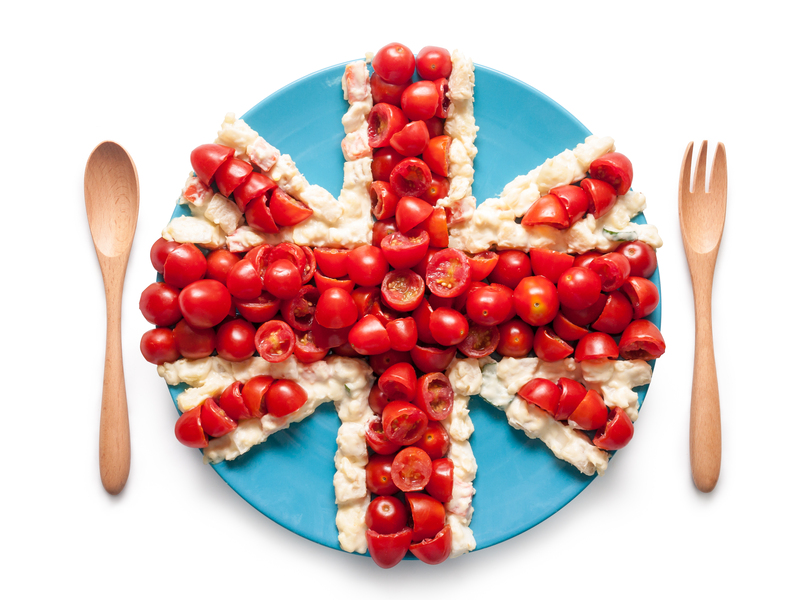Starting A Garden? Here Are 9 Tips for Beginners
Posted on 16/09/2025
Starting A Garden? Here Are 9 Tips for Beginners
Are you dreaming of harvesting your own homegrown vegetables, picking fresh flowers, or simply enjoying a tranquil green escape in your yard? Starting a garden may seem daunting if you're new to the world of plants, but don't worry--success is well within your reach! This comprehensive guide offers 9 essential gardening tips for beginners. Whether your goal is a vibrant flower bed or a thriving vegetable patch, these strategies will help your garden flourish from the very first season.
Why Start a Garden?
Gardening offers countless benefits for both mind and body. Engaging with nature reduces stress, provides mild exercise, improves air quality, and gives you access to fresh, healthy produce or beautiful blooms. It can also connect you with local pollinators and nurture your neighborhood's ecological health. Whether you have sprawling outdoor space or only a few pots on a balcony, gardening is an enriching pursuit that everyone can enjoy.

9 Expert Tips for Gardening Beginners
1. Start Small and Grow With Confidence
Ambitions can be inspiring, but when starting a garden, it's wise to begin with a manageable project. Choose a modest plot or a handful of containers as your first gardening adventure. This will help you focus your efforts, learn the ropes, and prevent overwhelm. As your knowledge grows, you can gradually expand and diversify your garden.
- Choose a size you can maintain - 4x4 feet is ideal for beginners.
- Start with easy-care plants and add variety later.
2. Understand Your Space and Sunlight
Location is everything! Observe your yard or growing area to determine how much sunlight it receives throughout the day. Most vegetables and flowers require at least 6 hours of direct sun to thrive, but some leafy greens and shade plants can tolerate less.
- Monitor morning and afternoon sun exposure.
- Notice shaded areas and hidden microclimates.
- Pick spots shielded from strong winds or heavy foot traffic.
Remember: The right spot makes all the difference for a successful garden.
3. Test and Prepare Your Soil
Healthy plants begin with nutrient-rich soil. Before planting, take time to assess your soil quality. Is it sandy, clay, or loamy? Does it drain well? Many garden centers sell do-it-yourself soil test kits that let you check for pH, nutrients, and texture. If you're gardening in containers, opt for high-quality potting mix tailored to what you're growing.
- Enhance poor soil by mixing in organic compost or well-rotted manure.
- Mulch with straw, bark, or leaves to retain moisture and suppress weeds.
4. Choose Beginner-Friendly Plants
Selecting easy-to-grow plants is the secret to early gardening success. Different climates and locations favor different species, so check your region's hardiness zone for best results.
- Vegetables: Lettuce, radishes, bush beans, peas, and zucchini.
- Herbs: Basil, mint, chives, and parsley.
- Flowers: Marigolds, sunflowers, zinnias, and cosmos.
Consult plant tags and online resources for specific growing instructions.
5. Water Wisely and Regularly
Proper watering is crucial for healthy roots and lush growth. Overwatering can suffocate plants, while underwatering leaves them parched. Established gardens typically need about one inch of water per week, but seedlings and containers may require more frequent checks.
- Water early in the day to reduce evaporation and discourage disease.
- Deep watering is better than shallow sprinkles -- soak the soil to encourage hardy roots.
- Use a soaker hose or watering can to minimize leaf wetness.
6. Feed Your Plants for Robust Growth
Just like people, plants need a balanced diet. While compost provides a great foundation, some crops benefit from an extra nutritional boost. Organic fertilizers derived from manure, seaweed, or bone meal are garden-friendly and gentle for beginners.
- Follow fertilizer directions carefully to avoid overfeeding.
- Monitor plants for yellowing leaves or stunted growth--these are often signs of nutritional deficiencies.
Healthy, well-fed plants are more resilient against pests and diseases.
7. Mulch for Moisture and Weed Control
Mulching is one of the easiest ways to reduce garden maintenance. It keeps soil moist, regulates temperature, and suppresses weeds that compete for nutrients.
- Popular mulch materials include straw, grass clippings, shredded bark, and leaf mold.
- Apply a 2-3 inch layer around your plants, but avoid piling against stems.
8. Be Vigilant About Pests and Problems
A garden is a living ecosystem that sometimes attracts unwanted "guests." Watch for common pests like aphids, slugs, and caterpillars, plus signs of plant disease (mildew, spotting, or wilting).
- Encourage beneficial insects (ladybugs, lacewings) by planting pollinator-friendly flowers.
- Handpick pests or use gentle, organic treatments when necessary.
- Remove sick plants promptly to prevent the spread of disease.
9. Keep Learning--And Enjoy Your Successes
Gardening is a lifelong journey of learning. Each season offers new lessons and opportunities. Don't get discouraged by the occasional failure--every gardener has them! Celebrate your victories, take photos of your progress, and seek advice from local garden clubs or online forums.
- Keep a garden journal to track planting dates, weather patterns, and results.
- Read books or watch videos on garden techniques and plant care.
- Connect with neighbors who garden for tips and inspiration.
Extra Tips for Starting Your First Garden
Understand Plant Selection and Timing
Beginners are often eager to plant all at once, but not all seeds or seedlings thrive in the same weather or season. Check your area's frost dates and adhere to planting calendars tailored to your region. Some plants, like peas and spinach, prefer cool weather, while tomatoes and peppers thrive in the heat of summer.
Invest in Basic Tools and Care for Them
Quality tools make gardening more enjoyable and effective. Start with essentials: a sturdy trowel, hand fork, pruning shears, watering can, and gloves. Keep them clean and dry to extend their life and prevent the spread of disease.
Practice Sustainable Gardening
Begin your gardening journey with eco-friendly practices. Compost kitchen scraps to enrich your soil, choose native plants that support local wildlife, and use rain barrels to conserve water. Gardening sustainably protects your environment and makes your garden a haven for birds, bees, and butterflies.
Enjoy the Journey!
Above all, remember that gardening is about enjoyment and discovery. Whether you're harvesting your first tomato or admiring a single bloom, every little success is a cause for celebration. With patience, curiosity, and these beginner gardening tips, you're well on your way to cultivating a beautiful green oasis.

Frequently Asked Questions: Starting Your Garden Right
- Q: How much time does a beginner garden take to maintain?
A: A small, starter garden requires about 15-30 minutes per day, mainly for watering, weeding, and observation. As your garden grows, maintenance time will increase. - Q: Can I garden without a backyard?
A: Absolutely! Container gardening or raised beds on balconies and windowsills are perfect for beginners. Many herbs and compact vegetables thrive in pots. - Q: What are the easiest plants for beginners?
A: Lettuce, radish, bush beans, zinnias, and marigolds are among the most forgiving for new gardeners. - Q: When is the best time to start a garden?
A: In most climates, spring is best for starting out, but fall gardens can be rewarding as well (try greens, carrots, and root crops).
Conclusion: Your First Steps into Gardening Success
With these 9 essential gardening tips for beginners and our bonus advice, you're equipped to dig in and start your own garden--no matter your available space or experience level. Remember: start small, observe and learn, and above all, enjoy nurturing life with your own hands. In time, your garden will reward you with beauty, bounty, and a sense of achievement that grows with every season.
Happy gardening!
Latest Posts
Transforming Your Yard into a Child's Wonderland
Unlock the Secrets to Cultivating a Vibrant Herb Garden
Smart Techniques for Weather-Proofing Your Garden



